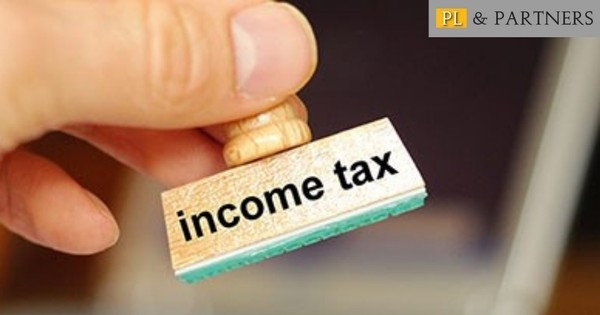Law on Personal Income Tax inconsistent
Law on Personal Income Tax inconsistent
The Ministry of Finance recently submitted an amendment to the Law on Personal Income Tax (PIT) to the Standing Committee of the National Assembly.
Illustrative photo. |
This move should in fact have been done two years ago in 2020, when the Consumer Price Index (CPI) at that time had increased to 22% compared to the time when the Law had come into effect. This is because the Law stipulates that when the CPI increases above 20% it must be adjusted.
Tax rates not reasonable
It is believed that the proposal to amend and adjust the Law on Personal Income Tax is too slow because the Ministry of Finance is trying to make its own adjustments even when the tax regulations and calculations are no longer consistent with ground reality. Because when the value of money decreases due to inflation, tax milestones and family deductions also decrease accordingly, making the lives of wage earners and dependents more and more difficult. Even in the difficult years of the Covid-19 pandemic, the income of employees decreased, but PIT still increased steadily. Only in the first quarter of this year, the PIT amount was estimated at 43.3% of the target plan, up to 20.6%.
There are two current major shortcomings in the Law on Personal Income Tax that need to be amended soon, which is that the seven-step progressive tax calculation method is too cumbersome and the regulations on family deduction levels are not realistic. According to the provisions of the current Law on PIT, individuals are entitled to deductions for social insurance, health insurance, unemployment, family deduction, charity, humanitarian contributions, and allowances, while the rest is income as a basis for PIT calculation.
How to calculate PIT according to the seven-step progressive schedule when each income level has a corresponding tax rate is the question. Specifically, first, the income level of VND 5 mln per month or less is subject to the tax rate of 5%; second, for VND 5 mln to VND 10 mln, the tax rate is of 10%; third, for the level of VND 10 mln to VND 18 mln, the tax rate is of 15%; fourth, for the level of VND 18 mln to VND 32 mln, the tax rate is of 20%; fifth, for the level of VND 32 mln to VND 52 mln, the tax rate is of 25%; sixth, from VND 52 mln to VND 80 mln, the tax rate is of 30%; and seventh, from VND 80 mln per month or more, the tax rate is of 35%.
Many people think that the provisions of the progressive PIT with seven levels and the gap between tax levels are too narrow and the tax rates are high, causing a heavy burden on taxpayers because income has just moved up and has fallen into a higher tax tier. Therefore, the revised Law on Personal Income Tax should reduce the taxable level to three to five steps and lower the tax rate of the steps as the current high tax rate does not show any fairness. Specifically, with the application of a 35% tax rate for incomes from VND 80 mln per month or more, it can only target the group of wage earners, and not be able to cover all other high-income groups in the country, such as trading, securities, and real estate with uncontrollable revenues.
Realistic family deduction
According to Asso. Prof. Dr. Ngô Trí Long, former Deputy Director of the Institute for Price Market Research under the Ministry of Finance, it is not appropriate to take CPI as a measure to adjust the PIT calculation rate and reduce family circumstances. Currently, CPI statistics do not fully reflect the increase in prices of essential goods and services in daily life that people have to pay.
According to regulations, when the CPI increases by 20%, it will be submitted to the Standing Committee of the National Assembly for consideration and adjustment, so in the past the adjustment of deductions for employees has not been timely, causing disadvantages to taxpayers. In fact, Vietnam's inflation usually only increases about 3% to 4% per year, and if the CPI is cumulative to achieve a 20% increase, it will take about five years to adjust the family deduction. Meanwhile, the annual increase in CPI has an impact on the income and lives of taxpayers. Therefore, adjustment of family deduction should not be based only on CPI, but also on people's income growth, because PIT is currently applied to high-income people, not to the middle-income people.
According to Asso. Prof. Dr. Ngô Trí Long, the family deduction in the current Law on Personal Income Tax is not close to ground reality, revealing obvious shortcomings. Specifically, from July 2020, the Law on Personal Income Tax stipulates that the deduction for family circumstances for taxpayers will be adjusted to increase from VND 9 mln to VND 11 mln per month, and for each dependent, increase from VND 3.6 mln to VND 4.4 mln per month. This is an outdated deduction when the economy is constantly growing, and the prices of goods and services increasing, causing taxpayers to spend a lot of money to cover their basic daily expenses.
Currently, for people with an income of VND 13 mln to VND 18 mln per month but having one or two dependents, that amount was only enough to cover their lives nearly ten years ago, calculated from the time of adjusting and supplementing the Law on Personal Income Tax in 2012. This amount is mainly spent on essential daily items such as food, fuel, electricity, water, education, etc. These expenses always have a higher rate of increase than the inflation figure every year, because the basket of goods calculated CPI with 11 groups of goods and services, while many non-essential things have reduced prices, such as post and telecommunications, beverages, tobacco, apparel, hats, and shoes.
In addition, according to current regulations, the family circumstance-based deduction is a common fixed rate for all taxpayers in different regions, when the level of living expenses has a significant difference but is not reasonable. At the same time, the Law on Personal Income Tax also does not allow employees to deduct expenses such as medical examination and treatment costs, and health care costs that health insurance does not cover.
Therefore, the revised Law on Personal Income Tax needs to supplement regulations on expenses with invoices and documents, such as school fees for children, interest on loans to buy the first house, insurance premiums, electricity, and water bills, and must be deducted when calculating the PIT. At the same time, the deduction for family circumstances must also be raised from VND 11 mln to VND 17 mln or VND 20 mln per month. Along with this, the level for dependents must be raised from VND 4.4 mln now to VND 6.5 mln or to VND 7.5 mln per month.



























